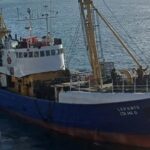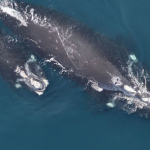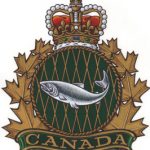Tag Archives: Safety
EDITORIAL: Safety plans for fishing vessels crucial to prevent further deaths in dangerous industry
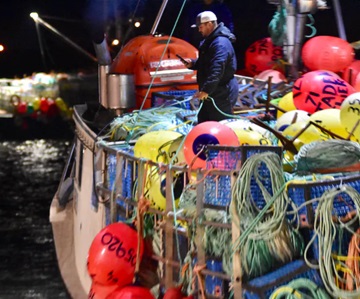 There have been many tragedies on the water in recent years. During last year’s lobster fishery, Christian Atwood, 27, died when he was lost overboard on Boxing Day from the fishing vessel MV Little Weasel II near Cape Sable Island, N.S. The previous March, Jeremy Hart, 35, died after falling into the water as members of his crew were being transferred from a life raft they had launched from their sinking vessel, Mucktown Girl, off of Canso. But it was the sinking of the scallop vessel Chief William Saulis in December 2020, and the deaths of all six crew aboard, that prompted the changes to the 2023-24 season. Capt. Charles Roberts, Aaron Cogswell, Daniel Forbes, Michael Drake, Geno Francis and Leonard Gabriel were all tragically lost in that event. >>click to read<< 12:29
There have been many tragedies on the water in recent years. During last year’s lobster fishery, Christian Atwood, 27, died when he was lost overboard on Boxing Day from the fishing vessel MV Little Weasel II near Cape Sable Island, N.S. The previous March, Jeremy Hart, 35, died after falling into the water as members of his crew were being transferred from a life raft they had launched from their sinking vessel, Mucktown Girl, off of Canso. But it was the sinking of the scallop vessel Chief William Saulis in December 2020, and the deaths of all six crew aboard, that prompted the changes to the 2023-24 season. Capt. Charles Roberts, Aaron Cogswell, Daniel Forbes, Michael Drake, Geno Francis and Leonard Gabriel were all tragically lost in that event. >>click to read<< 12:29
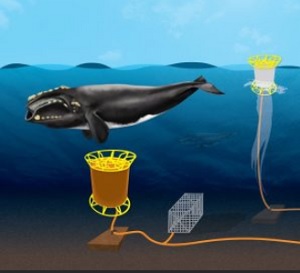
Ropeless Fishing Shows Promise, But There’s a Catch: Financial, Safety, Technology Challenges
On a cold January morning, a lobster trap sitting on a table at a manufacturing facility in Wareham is rhythmically beeping. Two final beeps have a special meaning. “So that’s the release confirmation,” explained Rob Morris, who sells acoustic release systems for the underwater technology company EdgeTech. These “ropeless” systems do away with the high number of vertical lines that run from buoys on the surface down to traps on the ocean floor. Looking at this table, Morris sees the future of the fishery, and many conservationists share that hope. Ropeless fishing eliminates vertical lines in the water column that are blamed for around half of all reported North Atlantic right whale deaths. >click to read< 10:22
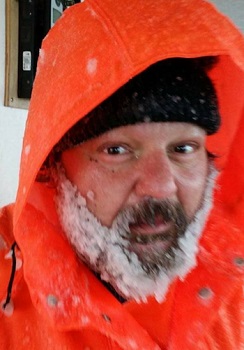
‘Bad things can happen on nice days’: Lobster season safety takeaways
Neil LeBlanc still remembers the moment he and a crew member made eye contact after the man had been pulled overboard from their lobster vessel. A rope was clenched in the man’s hand. “I remember him looking right at me. As soon as we made eye contact, he was gone.” LeBlanc knows from experience how fast you can disappear from the deck of a vessel.,, But that calm April day in 2016, LeBlanc says, also shows how things can go wrong at any time. As soon as their crew member Wayne Jacquard had gone overboard that day, as soon as their eye contact had been made, LeBlanc was turning the boat around to retrieve their man. Helping him onboard with the rescue was crew member Alderic DeViller, known to his friends as Beef (his nickname). >click to read< 10:30
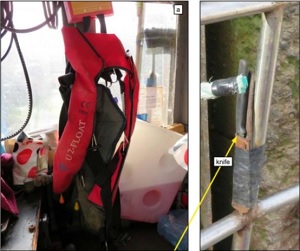
Scotland: Deep concern over failure to use PFD’s after fishing industry deaths
A safety warning has been issued to the fishing industry about the mandatory wearing of lifejackets (PFD’s) as concerns grow about deaths caused by not wearing them, despite moves to supply them free to Scottish boats. New figures show that six of the 12 fishermen who have died at sea in 2018 and 2019 were not wearing lifejackets,, The MAIB has said deaths in the water from those not wearing PFD was of “great concern” and said that “embedding behavioural change” could half the fatality rate in the fishing industry. It comes a year after the end of a scheme to supply PFDs to fishermen on Scottish-registered boats, with the intention of increasing the usage of a flotation garment while working on the open deck. Some 3,500 personal flotation devices (PFDs) were supplied,,, >click to read< 08:55
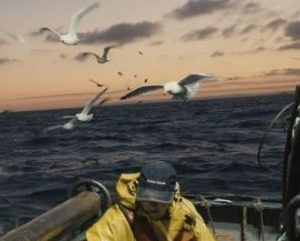
‘Home and Dry’: Fishing crews urged to turn the tide on industry’s safety record
The campaign comes as many fishing crews across the UK are returning to sea following weeks of lockdown and challenging market conditions to sell their catch. Created with support from the fishing industry, it focuses on the importance of community and home for those who make a living from catching fish. It shines a light on the pride and professionalism of the industry as a way to get vital out messages about good safety at sea. Dave Driver, a skipper featured in the campaign, says: “I’ve been a fisherman for most of my life, and as a vessel owner I am constantly thinking about my safety and the safety of my crew. >click to read< 07:30
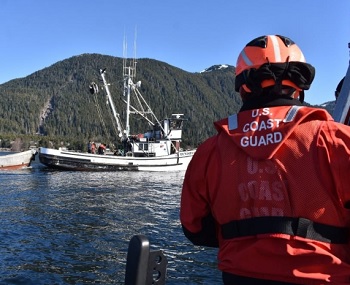
Substance Abuse and Safety: Coast Guard Identifies Concerning Trend in Maritime Law Violations in Alaska
U.S. Coast Guard investigators and inspectors have identified a concerning trend throughout the state of Alaska, ranging from illegal drug use to unserviceable life saving equipment. Investigators at Coast Guard Sector Anchorage have observed an increase in the number of positive drug tests for non-credentialed mariners throughout the Arctic and Western Alaska., Another concerning trend observed by inspectors with the Coast Guard Marine Safety Task Force relates to unserviceable or missing life-saving equipment aboard commercial fishing vessels. From June 8 through 22, members of the task force removed 119 immersion suits during commercial fishing vessel exams in the King Salmon area because they were not in serviceable condition. >click to read< 19:44
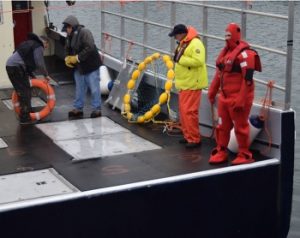
Huge emphasis placed on safety ahead of lobster season opener in southwestern N.S.
Throughout the fall, the ‘Are You Ready’ team has been busy visiting wharves throughout LFAs 33 and 34, conducting safety drills and sharing resources and knowledge to help ensure fishermen come home safely at the end of the day. “In general, especially leading up to the season fishermen already have safety on their minds,” said Matthew Duffy, safety advisor for the Fisheries Safety Association of Nova Scotia (FSANS). >click to read< 10:39
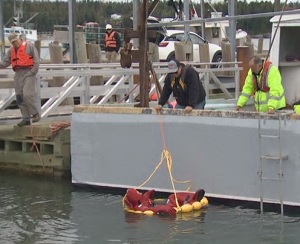
New rules in works to lift safety standards in fishing industry
Last year was the deadliest year for the Canadian fishing industry in more than a decade. Seventeen people died aboard fishing vessels in 2018, the most since 2004, prompting the Transportation Safety Board of Canada to sound the alarm about the industry’s safety culture. As it stands, fishing vessels are not considered a workplace, meaning they don’t adhere to any WorkSafeNB compliance requirements. Proposed legislative amendments would give captains binding safety obligations. >click to read< 08:07
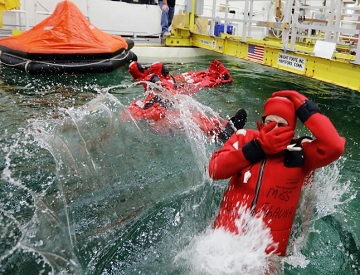
Free training prepares fishermen because ‘every second counts in an emergency at sea’
Fishing Partnership Support Services is offering programs in New Bedford to make life safer for those who have one of the world’s most dangerous jobs, commercial fishing. Safety and Survival Training will be from 7 a.m. to 3 p.m. March 7 at the School for Marine Science and Technology of the University of Massachusetts, 706 S. Rodney French Blvd. Drill Conductor Training will be at the same location from 8 a.m. to 4 p.m. March 8. There is no charge for either program, and lunch is provided both days. A team of certified marine safety instructors will lead both programs, according to a news release. Safety and Survival Training will cover: >click to read<14:37
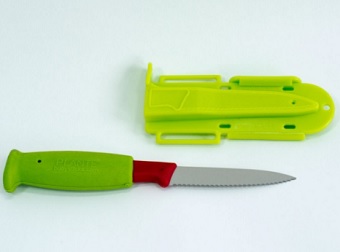
Island Fishermen’s Wives Association Knife distribution effort aims to keep lobstermen safe
According to the federal Centers for Disease Control and Prevention, commercial fishing is consistently ranked as the most deadly occupation in U.S. industry. Sadly, that comes as no surprise to anyone who lives along the coast of Maine, especially the women who are members of the Island Fishermen’s Wives. For lobstermen, one of the greatest risks is becoming entangled in the line that connects lobster traps to their marker buoys and being pulled overboard. >click to read<19:01

Nautic Alert to Safeguard Commercial Fisherman and Assets With Their New Upcoming VMS Type-Approved Insight X2
Nautic Alert just unveiled one of the most technologically-advanced marine monitoring, tracking, safety and security system designed specifically for yachts, and now has some really exciting news for commercial fisherman. Nautic Alert will be releasing a VMS type-approved Insight which will not only bring NOAA tracking to fisherman, but also unmatched security and safety protection with the industry’s first SMART bilge controller, microwave and radar-based intrusion detection, and man-overboard with global emergency monitoring. Nautic Alert is an EDGE-based system with onboard learning intelligence designed to provide early detection of critical systems. >click here to read< 13:16 
Transportation Safety Board: Culture shift needed to make Canadian fishing industry less deadly
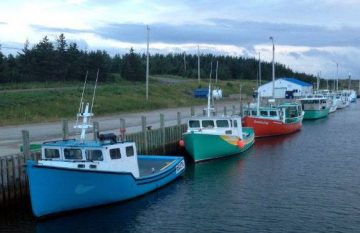 The fishing industry has cost more than 30 Canadian lives since 2000 and must improve its culture of safety, the Transportation Safety Board said as it released a report into a Newfoundland accident that left three people dead. The board said the tragedy near Placentia Bay last year demonstrates the need for increased regulations around fishing safety and a change of attitudes among fishermen. “The number of accidents involving loss of life on fishing vessels remains too high,” the report said, adding there were 31 deaths involving commercial fishing vessels between 2000 and 2015. “Concerted and co-ordinated action is required by federal and provincial authorities and by leaders in the fishing community to improve the safety culture in fishing operations.” Read the rest here 13:32
The fishing industry has cost more than 30 Canadian lives since 2000 and must improve its culture of safety, the Transportation Safety Board said as it released a report into a Newfoundland accident that left three people dead. The board said the tragedy near Placentia Bay last year demonstrates the need for increased regulations around fishing safety and a change of attitudes among fishermen. “The number of accidents involving loss of life on fishing vessels remains too high,” the report said, adding there were 31 deaths involving commercial fishing vessels between 2000 and 2015. “Concerted and co-ordinated action is required by federal and provincial authorities and by leaders in the fishing community to improve the safety culture in fishing operations.” Read the rest here 13:32
How safe is the fishing industry in South Jersey? Training and tech improve safety
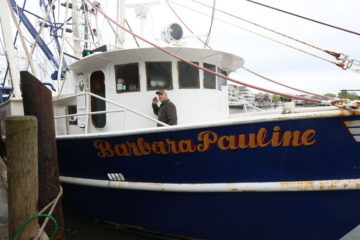 The crew of the Barbara-Pauline offloaded 17,000 pounds of scallops, stored like jewelry in soft cloth bags. And for the Port of Cape May, they might as well be white gold. New Jersey’s fisheries were ranked 11th in total value nationwide at $152 million in 2014. The Port of Cape May, with its valuable scallop fishery, is responsible for much of that. The Barbara Pauline made its quota in eight days at sea, earning each crew member as much as $15,000. But it’s not easy money. Commercial fishing is one of America’s most dangerous jobs. Statistically, fishermen are far more likely to die on the job than those in virtually any other profession. In the decade of the 2000s, an average of 17 fishermen died at sea each year from sinking, capsizing, falls overboard or traumatic injuries sustained on pitching decks surrounded by heavy moving equipment. Read the story here 08:00
The crew of the Barbara-Pauline offloaded 17,000 pounds of scallops, stored like jewelry in soft cloth bags. And for the Port of Cape May, they might as well be white gold. New Jersey’s fisheries were ranked 11th in total value nationwide at $152 million in 2014. The Port of Cape May, with its valuable scallop fishery, is responsible for much of that. The Barbara Pauline made its quota in eight days at sea, earning each crew member as much as $15,000. But it’s not easy money. Commercial fishing is one of America’s most dangerous jobs. Statistically, fishermen are far more likely to die on the job than those in virtually any other profession. In the decade of the 2000s, an average of 17 fishermen died at sea each year from sinking, capsizing, falls overboard or traumatic injuries sustained on pitching decks surrounded by heavy moving equipment. Read the story here 08:00
Wear that PFD! Lifejackets key for rescued fishermen
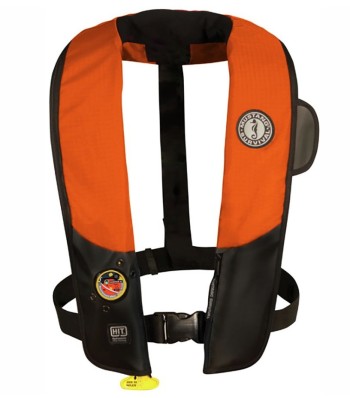 TWO fishermen saved after hours floating in waters off Ulverstone on Monday afternoon survived due to “everything going in their favour”, says a key lifesaving official. State lifesaving officer Chris Jacobson said that onshore currents, life jackets, easterly winds and the location of training crew members in an inflatable rubber boat (IRB) were among the factors that ensured the men survived the ordeal.”Realistically if they hadn’t had those jackets on their chance of survival wouldn’t have been good for that period of time,” Mr Jacobson said. Read the story here 08:05
TWO fishermen saved after hours floating in waters off Ulverstone on Monday afternoon survived due to “everything going in their favour”, says a key lifesaving official. State lifesaving officer Chris Jacobson said that onshore currents, life jackets, easterly winds and the location of training crew members in an inflatable rubber boat (IRB) were among the factors that ensured the men survived the ordeal.”Realistically if they hadn’t had those jackets on their chance of survival wouldn’t have been good for that period of time,” Mr Jacobson said. Read the story here 08:05
Lobster Fishermen Reminded of Safety as Season Starts
 Lobster fishermen in southwest Nova Scotia are reminded to stay safe as they launch the start of their season Monday, Nov. 30. “Fishermen have led the change to improve safety across the fishing industry with more man-overboard training and an increased use of personal flotation devices,” said Kelly Regan, Nova Scotia Minister of Labour and Advanced Education. “I urge all fishermen to continue with the great progress they’ve made, and keep safety a priority as they head out,,, Read the article here 19:54
Lobster fishermen in southwest Nova Scotia are reminded to stay safe as they launch the start of their season Monday, Nov. 30. “Fishermen have led the change to improve safety across the fishing industry with more man-overboard training and an increased use of personal flotation devices,” said Kelly Regan, Nova Scotia Minister of Labour and Advanced Education. “I urge all fishermen to continue with the great progress they’ve made, and keep safety a priority as they head out,,, Read the article here 19:54
Sea You Home Safe! Seafish is calling on the UK’s fishermen to think about their safety
 Seafish is calling on the UK’s fishermen to think about their safety after research revealed 46% of commercial fishermen consider their job to be dangerous but 34% say they rarely or never wear a Personal Flotation Device (PFD). Seafish’s safety at sea campaign, Sea You Home Safe, is continuing to call for the 12,000 fishermen across the UK to think about their safety before setting sail, with 7,000 new lightweight PFDs given to UK fishermen over the past year. Read the rest here 16:42
Seafish is calling on the UK’s fishermen to think about their safety after research revealed 46% of commercial fishermen consider their job to be dangerous but 34% say they rarely or never wear a Personal Flotation Device (PFD). Seafish’s safety at sea campaign, Sea You Home Safe, is continuing to call for the 12,000 fishermen across the UK to think about their safety before setting sail, with 7,000 new lightweight PFDs given to UK fishermen over the past year. Read the rest here 16:42
Seafarers UK: Maritime industry to supply free safety devices
 SEAFISH has welcomed the news that the UK maritime industry bodies’ have pledged more than £150,000 in additional funding to provide more commercial fishermen with free Read more here 08:00
SEAFISH has welcomed the news that the UK maritime industry bodies’ have pledged more than £150,000 in additional funding to provide more commercial fishermen with free Read more here 08:00
Safety, and Survival Training, Gloucester May 15 – 16
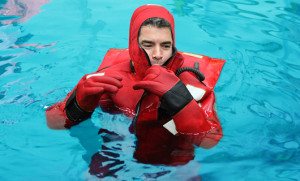 Fishing Partnership Support Services is offering two hands-on training sessions taught by Coast Guard-Certified Fishing Vessel Safety Instructors. These day-long trainings are FREE for commercial fishermen – and you’ll be learning from the best. Read more here 15:45
Fishing Partnership Support Services is offering two hands-on training sessions taught by Coast Guard-Certified Fishing Vessel Safety Instructors. These day-long trainings are FREE for commercial fishermen – and you’ll be learning from the best. Read more here 15:45
**PHOTO AVAILABLE**Two rescued by Coast Guard after drifting for eight days at sea
 Coast Guard Sector Miami watchstanders received a report of a capsized vessel with two people sitting on the hull in the vicinity of Riviera Beach Saturday afternoon. Watchstanders quickly diverted the Coast Guard Cutter Comorant and authorized the launch of an MH-65 rescue helicopter from Air Station Miami. The helicopter crew arrived on scene, assesed the situation and lowered a rescue swimmer to render assistance. The two people stated they had been drifting for eight days and had ingested salt water.
Coast Guard Sector Miami watchstanders received a report of a capsized vessel with two people sitting on the hull in the vicinity of Riviera Beach Saturday afternoon. Watchstanders quickly diverted the Coast Guard Cutter Comorant and authorized the launch of an MH-65 rescue helicopter from Air Station Miami. The helicopter crew arrived on scene, assesed the situation and lowered a rescue swimmer to render assistance. The two people stated they had been drifting for eight days and had ingested salt water.
The Coast Guard urges all boaters, especially those transiting offshore or to remote areas, to carry an Emergency Position Indicating Radio Beacon or a Personal Locator Beacon. EPIRBS and PLB’s save valuable time during maritime emergencies by transmitting electronic distress signals and GPS coordinates. more@uscgnews 19:30
The Workers’ Compensation Board of Nova Scotia campaign aims to keep fishermen afloat

The Workers’ Compensation Board of Nova Scotia has taken matters in hand, literally, with a new campaign aimed at encouraging fishermen to wear personal flotation devices while near or on the water. Board staffers have been hitting waterfront events across the province with a new summer slogan: “Who do you wear your PFD for?” continued@chronicleherald17:25:41
Life raft cause of three deaths – incorrectly stowed life raft failed to float free and automatically inflate when their vessel sank.
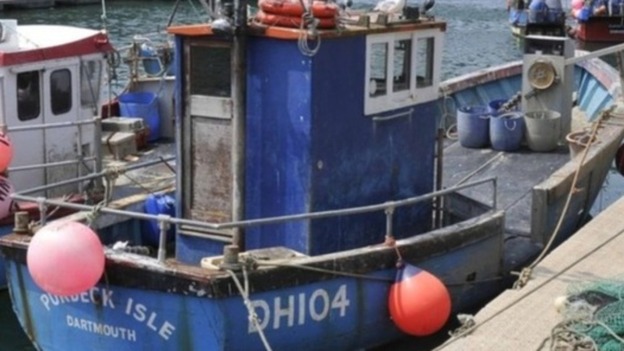 UK- A man who lost his son at sea says tighter safety regulations should be introduced to prevent further tragedy. Peter Prowse’s son, Robert, died along with two crewmen when their boat, the Purbeck Isle, sank. A report said a lifeboat had not been correctly fitted. His body was never found. continued
UK- A man who lost his son at sea says tighter safety regulations should be introduced to prevent further tragedy. Peter Prowse’s son, Robert, died along with two crewmen when their boat, the Purbeck Isle, sank. A report said a lifeboat had not been correctly fitted. His body was never found. continued
Create a culture of safety, not tragedy, in fishing industry – Stewart Franck, Executive Director of the Fisheries Association of Nova Scotia.
 Last year on May 9, we marked with great sadness the 20th anniversary of the Westray Mine disaster. On that day back in 1992, 26 men lost their lives while at work. It’s a day, a moment in time, that left an entire province blanketed with grief, and each year that passes we are haunted with the memory of lives so needlessly lost. We think about the wives and children on that day in ’92, waiting anxiously for their husbands and dads to walk through the door. We think of the aging parents of the miners, looking forward to the day they would welcome grandkids into their lives, a day that would now never come. continued
Last year on May 9, we marked with great sadness the 20th anniversary of the Westray Mine disaster. On that day back in 1992, 26 men lost their lives while at work. It’s a day, a moment in time, that left an entire province blanketed with grief, and each year that passes we are haunted with the memory of lives so needlessly lost. We think about the wives and children on that day in ’92, waiting anxiously for their husbands and dads to walk through the door. We think of the aging parents of the miners, looking forward to the day they would welcome grandkids into their lives, a day that would now never come. continued
Pushing the PFD message with fishermen
Years ago fishermen complained they were too bulky. Too hot. Uncomfortable. And, many felt, not needed. But efforts are ongoing to convince fishermen that PFDs, or personal floatation devices, are not the enemy. By law PFDs are required to be on a fishing vessel and anywhere else where there is a risk of drowning. But sometimes getting fishermen to wear PFDs while they’re working can be a different story. Some will. Some won’t. Read more






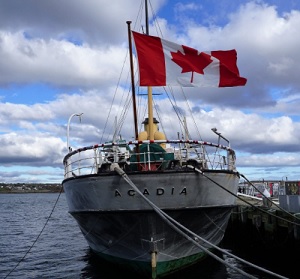
 Fishing is one of the most dangerous jobs in the United States. Last year the Bureau of Labor Statistics ranked fishing as the second most dangerous profession, behind logging, based on the number of fatalities. Between 2000 and 2012, there were 623 commercial fishing related deaths nationwide, according to a database run by the National Institute for Occupational Health and Safety. NIOSH has been studying the incidents that led to those deaths carefully, and believes hundreds of lives might be saved if more people would wear their PFD’s. Read
Fishing is one of the most dangerous jobs in the United States. Last year the Bureau of Labor Statistics ranked fishing as the second most dangerous profession, behind logging, based on the number of fatalities. Between 2000 and 2012, there were 623 commercial fishing related deaths nationwide, according to a database run by the National Institute for Occupational Health and Safety. NIOSH has been studying the incidents that led to those deaths carefully, and believes hundreds of lives might be saved if more people would wear their PFD’s. Read 





























